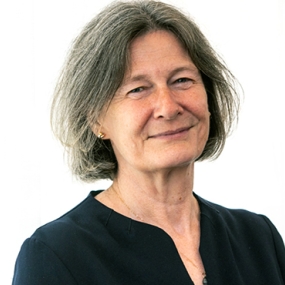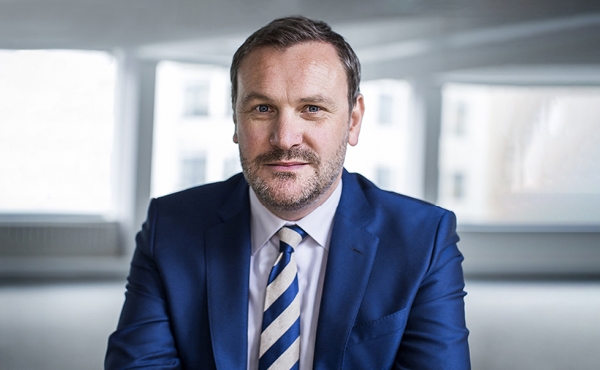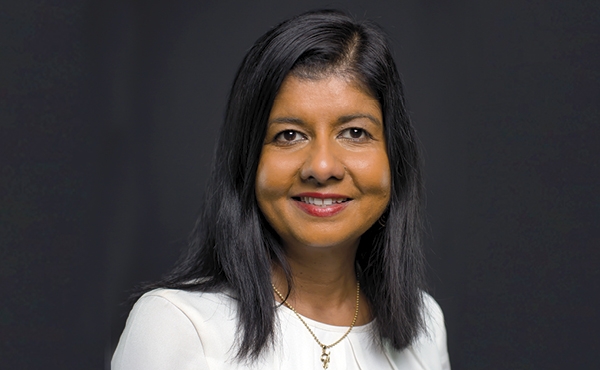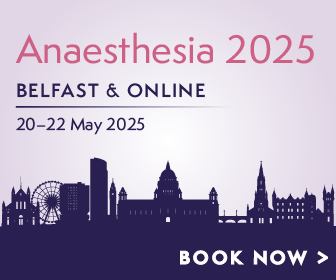
I write this during the final weeks of the general election campaign and by the time the Bulletin is published, we’ll be just days away from knowing the result. In the run-up to the election, we’ve been busy petitioning all the political parties with our manifesto priorities and whatever the outcome, we will persist in our campaign for the next government to develop and fund a plan for more doctors to train as anaesthetists and action to improve the working lives of doctors.
It’s also a time for change for me personally. This is the last time I’ll write for the Bulletin as President before handing over to our President Elect Dr Claire Shannon in September. I’ve also recently retired from my day job at Southmead Hospital in Bristol, where I’ve been a consultant anaesthetist for the last 27 years. All of this makes me reflect on my time as President in the context of the many changes and transitions I’ve experienced over the course of my career.
When I was elected President in 2021, we were still very much in the immediate aftermath of the pandemic. The exhaustion and trauma were painfully apparent and if we couldn’t always recognise it in ourselves, we could see it in our friends and colleagues. I was determined those experiences would not be forgotten and that’s what drove us to apply for Core Participant status in the UK COVID-19 Inquiry, together with the Association of Anaesthetists and the Faculty of Intensive Care Medicine.
We were successful in our application because thanks to you, our members, we have a vast amount of evidence of the pandemic’s impact. Evidence of the long hours and the traumatic nature of the work, the isolation from friends and family and the loss. One of the aims of the Inquiry is to identify ways we can be better prepared for future pandemics and other emergencies. If our evidence can contribute to preventing future harms then that at least will be something positive.
Commitment to our members
We set out our post-pandemic commitment to our members in our 2022–2027 strategy, promising to work towards our vision of safe, more effective patient care, delivered by a well-trained, supported and valued workforce. That commitment includes fighting for systemic problems in the NHS to be addressed, chiefly the shortage of anaesthetists, as well as other elements of our working lives that have a negative impact on wellbeing and retention. Our 2022 State of the Nation report set this out in stark terms, once again drawing on data and insights from our members.
I have used this evidence time and time again over the last three years at meetings with NHS leaders, senior civil servants, MPs, Ministers and a succession of Secretaries of State. As a result, we now have more anaesthetic training places. But it is not enough. Our latest workforce data, the headlines from which we used in our manifesto, once again demonstrates that more anaesthetists are essential if we are to reduce waiting lists and deliver timely care for patients. I wish it wasn’t necessary for me to say that this will continue to be our campaigning priority for the years ahead, but it is and it will.
Just and fair
Another priority is our work to tackle the persistent inequalities and discrimination in our specialty and in the NHS more broadly. In medical education for example, we have work underway to better understand and combat differential attainment, through research and improvements to our exams. Our new role of affiliate examiner is helping to further increase the diversity of our examiner pool. We will shortly publish our revised policy for responding to requests for reasonable adjustments and we have further developed our online training hub to make training guidance easily accessible to all. We hope our GasReach programme will help widen participation in the specialty.
These initiatives are underpinned by our Equality Research Project, which helps us investigate issues relating to equality, diversity inclusion and representation within the specialty and the College. As a member, you can help us by updating your personal information in My RCoA so that we can understand and assess diversity trends within our membership.
Last year I was shocked, although sadly not surprised by the widespread nature of sexual misconduct and violence in our workplaces, as documented in reports from the Working Party on Sexual Misconduct in Surgery’s (WPSMS) report and Surviving in Scrubs. Having encouraged our members to participate in the WPSMS survey, I was grateful that some of you felt able to share your experiences, which must have been very difficult.
Since then, we have continued to work with the WPSMS, the Royal College of Surgeons and others to implement the recommendations and promote the resources available, as well as participating in NHS-wide action such as the sexual safety in healthcare charter and the BMA’s end sexism in medicine campaign. Everyone deserves to work in a safe environment and that means doing all we can to eradicate sexual misconduct.
If you are looking for support for your own wellbeing, our wellbeing hub is a good place to start. We have resources to support individual wellbeing, including support for education and training, as well as tools to help you embed wellbeing good practice within your department, such as the departmental wellbeing lead job description and person specification. This issue of the Bulletin includes some tips for enhancing your wellbeing in a guest editorial from Dr James Wicker and Dr Guy Sanders.
Driving improvements in patient care and outcomes
The publication of our 7th National Audit Project (NAP7) was one of the highlights of my presidency. It is impossible to overstate just how much work goes into a project like NAP7. It is a genuinely collegiate effort that encompasses our clinical leads and co-authors, our network of Local Coordinators, our Steering Panel, patient representatives and contributions from 11,000 members who responded to the baseline survey. We see this effort replicated across all our research, audit and quality improvement projects.
It can be easy to underestimate the impact of these projects, not least because it is rarely immediate. Improving clinical practice takes time. Having a wealth of robust data and evidence is only part of the picture, we also need to ensure it’s accessible and focused on improving clinical practice. That’s why the work of our Centre for Research and Improvement is so important, not only in dissemination and engagement, but also in encouraging and facilitating your involvement so that we can sustain a culture of using research to drive improvements in patient care.
A cautious finding from NAP7 is that airway management is likely to have become safer in the last decade, despite the surgical population having become more anaesthetically challenging. I mention that because while we can’t prove cause and effect, it’s heartening that the work we have done over a sustained period with the Difficult Airway Society, the Association of Anaesthetists and others to improve airway management appears to be having a clear patient benefit.
It’s also been gratifying to see the impact our Anaesthesia Clinical Services Accreditation (ACSA) continues to have on quality improvement. For example, over the last decade, the accreditation process has resulted in at least 20 departments increasing the provision and/or use of capnography, ensuring all patients are appropriately monitored. Another 11 departments improved their preoperative assessment services, particularly those for children and nine departments have introduced or expanded separately staffed elective caesarean-section lists. Do have a read of Ruth Nichols’ article for a deeper dive into the 10th anniversary of ACSA.
Our College is our community
In April’s Bulletin I wrote about our work to improve training and how anaesthetists in training themselves are contributing to that work. In fact, I think their influence is increasingly evident across the College, which can only be a good thing. In 2022 we doubled anaesthetist in training representation on Council. That has helped ensure those who are the future of the specialty are at the heart of our decision making, but it has also set a trend for greater involvement across other areas of our work. I’m very fortunate that one of my last engagements as President will be Diplomates Day in September and I’m looking forward to celebrating the achievements of everyone there.
I’ll finish by saying thank you to all of you for your continued membership of the College and for volunteering your time and expertise to strengthen our specialty. I’ve learned a lot from so many of you in the last three years and I’m thankful. As a community of over 20,000 people, we will always encounter some challenges but if we keep listening to each other and treating each other with respect and kindness, I believe we will move forward together and achieve great things for the specialty, the College and most importantly for patients.
Read more in this issue
- Bulletin: Summer 2024
- Editorial
CEO update
- Bulletin: Summer 2024
- Editorial
From the Editor
- Bulletin: Summer 2024
- Editorial




